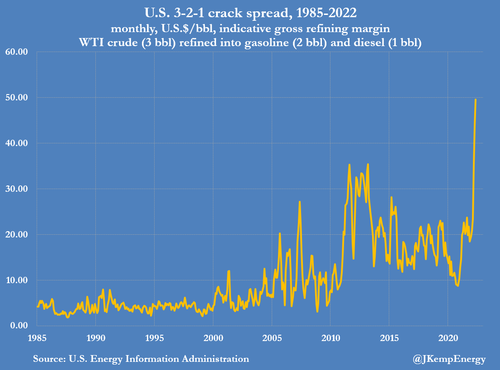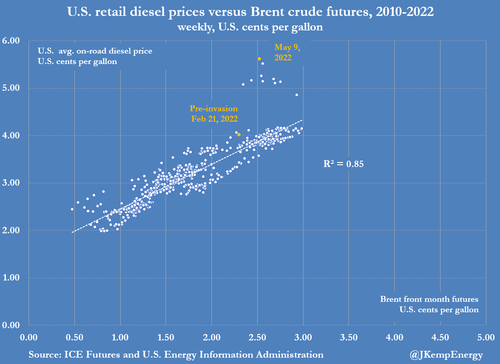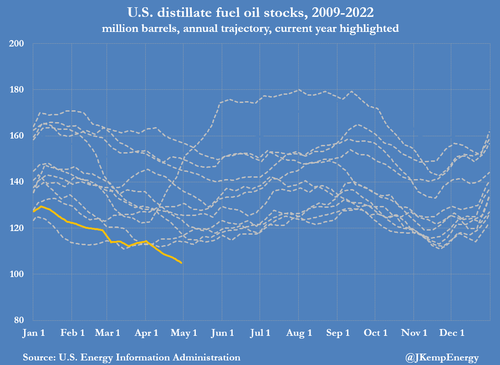Widespread US Diesel Shortages Send Crack Spreads To Mindblowing Highs
Global stocks of refined petroleum products have fallen to critically low levels as refineries prove unable to keep up with surging demand especially for the diesel-like fuels used in manufacturing and freight transportation. The result has been a surge in prices refiners receive for selling fuels compared with prices they pay for buying crude and other feedstocks, boosting their profitability significantly.
In the United States, refiners currently receive roughly an average of more than $150 per barrel from the sale of gasoline and diesel at wholesale prices, while paying only around $100 to purchase crude.
The indicative 3-2-1 margin of $50 per barrel is based on the assumption a refinery produces two barrels of gasoline and one barrel of diesel from refining three barrels of crude.
The margin is meant to be representative for an “average” refinery and is a gross figure out of which refiners have to pay for labor, electricity, gas, hydrogen, catalysts, pipeline transport and the cost of capital.
Net margins are narrower and refinery costs have been rising rapidly as result of widespread inflation ripping through the economy following the coronavirus pandemic. Nonetheless, even allowing for rising input costs, gross margins have more than doubled from $20 at the end of 2021, ensuring refiners have a strong financial incentive to maximize crude processing and fuel production.
DISTILLATE FOCUS
Gross margins are currently higher for making diesel (almost $60 per barrel) than for gasoline ($45 per barrel) reflecting the relative shortage of middle distillates.
U.S. distillate fuel oil stocks are 31 million barrels (23%) below the pre-pandemic five-year average compared with a deficit of only 6 million barrels (3%) in gasoline.
…click on the above link to read the rest of the article…


